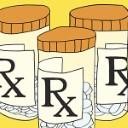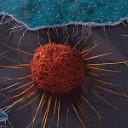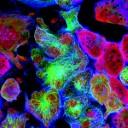-
July 27: The Week in Cancer News
A study asks whether sunless tanning might encourage riskier tanning behavior, and an article investigates the supercomputer Watson's performance.
by Kate Yandell
-
July 20: The Week in Cancer News
A Chinese movie prompts political discourse about the cost of medication, and a study suggests that dining and sleeping habits may contribute to a person's risk of breast and prostate cancer.
by Brad Jones
-
July 13: The Week in Cancer News
An opinion piece discusses how the stigma surrounding opioids affects cancer patients, and a study provides data on treating melanoma patients with brain metastases.
by Kate Yandell
-
July 6: The Week in Cancer News
Studies explore what type of cervical cancer screening is most effective and whether patients with autoimmune diseases can take immunotherapy.
by Kate Yandell
-
June 29: The Week in Cancer News
Studies explore occupational hazards that could increase cancer risk, and the U.S. Food and Drug Administration approves a new combination therapy for melanoma.
by Kate Yandell
-
June 22: The Week in Cancer News
Experts debate direct-to-consumer genetic testing and studies shed light on breast reconstruction complications.
by Kate Yandell
Previous |
Cancer Talk
Treatment Combination Improves Survival in EGFR-positive Lung Cancer
Adding chemotherapy to targeted therapy improves outcomes for people with advanced EGFR-positive non-small cell lung cancer.
by Sandra Gordon
Lessons From 20 Years Living With CancerMultiple myeloma survivor Jonathan Gluck reflects on uncertainty, and the scientific progress that has kept him living with cancer for more than two decades.
by Eric Fitzsimmons
The Enduring Importance of Cancer Disparities ResearchOpening session from AACR conference highlights how perseverance and adversity have informed cancer disparities research over the years.
by Eric Fitzsimmons
Most Cancer Survivors Don’t Meet Healthy Diet GoalsDespite research linking fruits and vegetables to cancer survival, many people do not change their eating habits after diagnosis.
by Darlene Dobkowski










